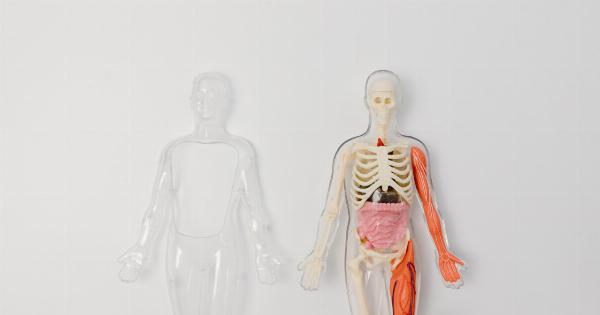Menopause is a natural biological process that occurs in women as they age, typically in their late 40s or early 50s. It is characterized by the cessation of menstrual periods and the decline in reproductive hormones like estrogen and progesterone.
However, there have been cases where young women experience symptoms similar to menopause, even before the expected age of onset. This phenomenon, known as premature menopause or premature ovarian insufficiency (POI), raises questions and concerns about fertility, health, and the overall well-being of these women.
In this article, we will delve into the topic of young women and menopause and explore the causes, symptoms, and potential treatments for this condition.
Understanding Menopause
Menopause is a natural part of a woman’s life and usually occurs between the ages of 45 and 55. It is the result of the ovaries gradually producing less estrogen and progesterone, leading to the end of menstrual cycles.
Common symptoms of menopause include hot flashes, night sweats, mood swings, vaginal dryness, and sleep disturbances. While menopause is a normal part of the aging process, premature menopause occurs when women experience these symptoms before the age of 40.
What is Premature Menopause?
Premature menopause, also known as premature ovarian insufficiency (POI), is a condition where women experience menopause-like symptoms before the age of 40. It is estimated that about 1% of women experience premature menopause.
Causes of Premature Menopause
The exact causes of premature menopause are not always clear. However, several factors can contribute to this condition:.
1. Genetic Factors
Genetics can play a role in determining the age at which menopause occurs. If women have close family members who experienced early menopause or premature menopause, they may be more likely to experience it themselves.
2. Autoimmune Disorders
Some autoimmune disorders, such as thyroid disease and lupus, can increase the risk of premature menopause. These conditions can affect the functioning of the ovaries and lead to an earlier onset of menopause symptoms.
3. Chromosomal Abnormalities
Certain chromosomal abnormalities, such as Turner syndrome or fragile X syndrome, can cause ovarian dysfunction and result in premature menopause.
4. Cancer Treatments
Chemotherapy and radiation therapy used for cancer treatment can damage the ovaries and lead to premature menopause. The younger the woman is when she receives these treatments, the higher the risk of early menopause.
5. Smoking
Smoking has been linked to an increased risk of early menopause. Women who smoke may experience menopause symptoms earlier than non-smokers.
Symptoms of Premature Menopause
The symptoms of premature menopause are similar to those of natural menopause and include the following:.
1. Irregular or Absent Periods
Women with premature menopause may experience irregular or missed menstrual periods. This is often one of the first signs of early menopause.
2. Hot Flashes and Night Sweats
Hot flashes and night sweats, characterized by sudden feelings of heat and excessive sweating, are common symptoms of premature menopause.
3. Mood Changes
Mood swings, irritability, and decreased sex drive are common symptoms reported by women with premature menopause.
4. Vaginal Dryness and Painful Intercourse
Lack of estrogen can lead to vaginal dryness and discomfort during sexual intercourse, making it painful.
5. Sleep Disturbances
Sleep disturbances, such as insomnia or restless sleep, can occur during premature menopause.
Diagnosis and Treatment
If a young woman experiences symptoms of premature menopause, she should seek medical advice. A healthcare provider will evaluate her medical history, perform a physical examination, and order blood tests to determine hormone levels.
Hormone Replacement Therapy (HRT)
In many cases, hormone replacement therapy (HRT) is prescribed to relieve the symptoms of premature menopause. HRT involves taking estrogen and, in some cases, progesterone, to balance hormone levels in the body.
This treatment can help alleviate symptoms such as hot flashes, vaginal dryness, and mood swings.
Fertility Concerns
Premature menopause can affect a woman’s fertility and ability to conceive. However, it does not necessarily mean that pregnancy is impossible.
Some women with premature menopause may still be able to conceive with the help of assisted reproductive technologies like in vitro fertilization (IVF) or egg donation.
Emotional Support
A diagnosis of premature menopause can be emotionally challenging for young women. It is essential for healthcare providers to offer emotional support and provide resources to help women navigate this life-changing event.
Lifestyle Changes
Adopting a healthy lifestyle can help manage the symptoms of premature menopause. Regular exercise, a balanced diet, stress management techniques, and avoiding smoking and excessive alcohol consumption can contribute to overall well-being.
Conclusion
Young women experiencing symptoms similar to menopause should not ignore them. Premature menopause, though a rare condition, can have significant implications for a woman’s health and fertility.
Seeking medical advice and exploring treatment options can help manage symptoms and improve the quality of life for these women. With the right support and information, young women with premature menopause can lead fulfilling lives and make informed decisions about their reproductive health.






























